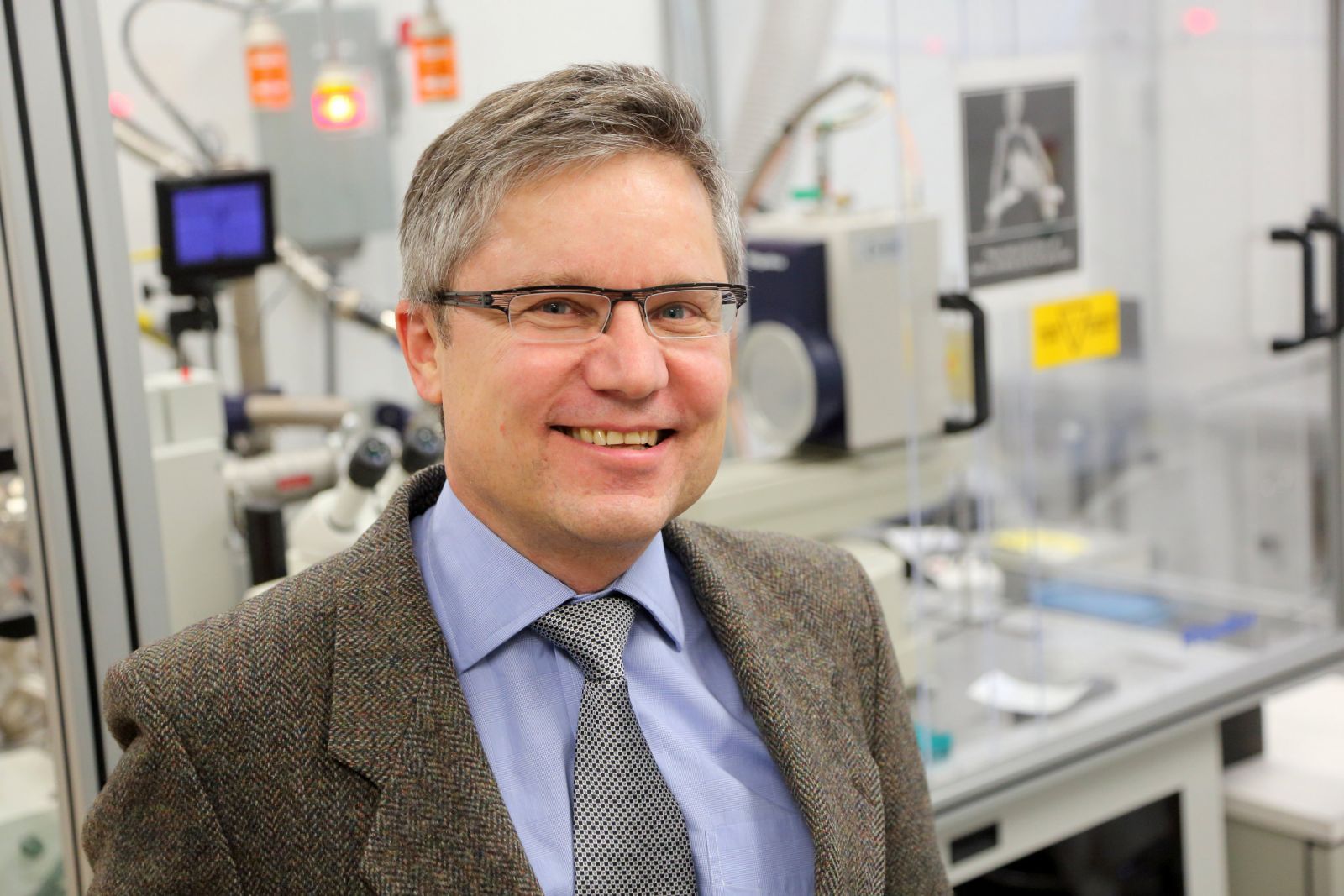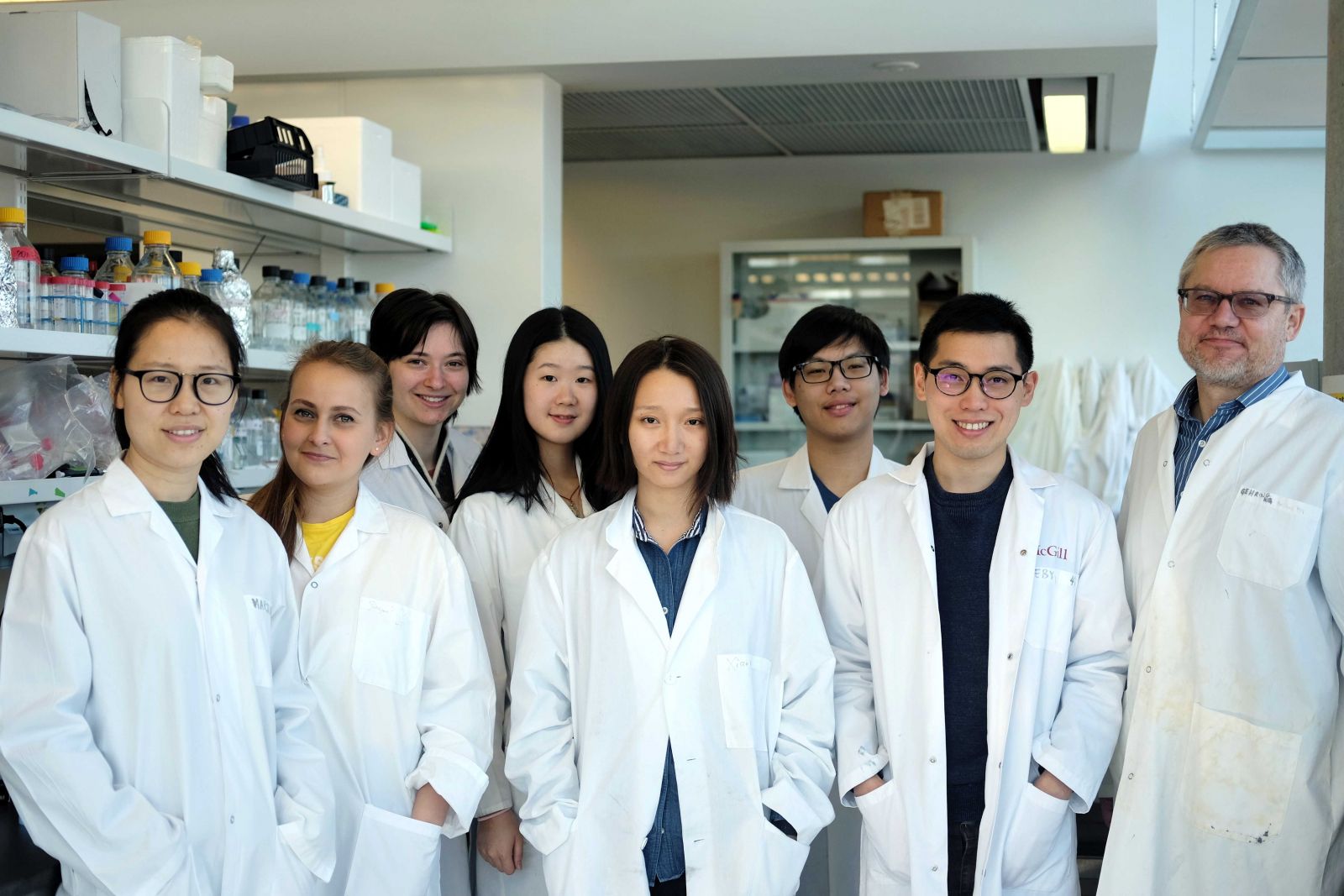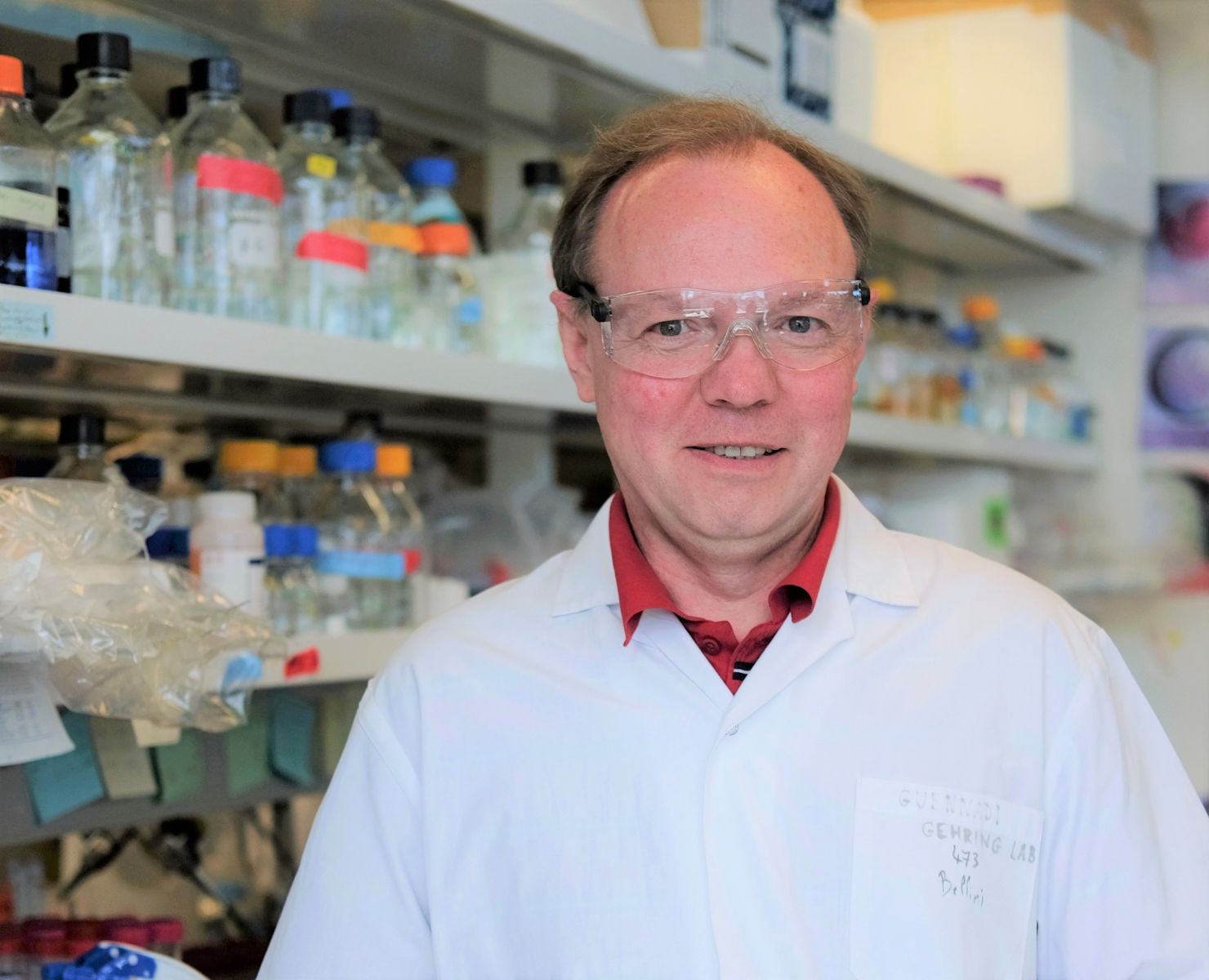How cellular proteins control cancer spread
A new insight into cell signals that control cancer growth and migration could help in the search for effective anti-cancer drugs, according to McGill University researchers who used the CLS.
By Erin MatthewsMembers of the Gehring research laboratory discussing the results of a protein purification.
New finding may help focus the search for anti-cancer drugs
A new insight into cell signals that control cancer growth and migration could help in the search for effective anti-cancer drugs. A team of researchers has revealed key biochemical processes that advance our understanding of colorectal cancer, the third most common cancer among Canadians.

Using the CMCF beamline at the Canadian Light Source (CLS) at the University of Saskatchewan, scientists from McGill University and Osaka University in Japan were able to unlock the behavior of an enzyme involved in the spread of cancer cells. The team found that there is a delicate interaction between the enzyme, PRL3, and another protein that moves magnesium in and out of cells. This interaction is crucial to colorectal cancer growth.
“These enzymes were first seen in liver cells that were activated to start growing, so somehow they act as a growth signal,” said McGill biochemistry professor and corresponding author Dr. Kalle Gehring.
It was generally believed that PRL3 proteins acted as enzymes to control cancer cells. Therefore, it came as a surprise when Gehring and his team found that a mutation that leads to a loss of the enzyme activity still maintained the same influence over cancer growth and migration. “What our new paper showed is that a second activity of PRL3, control of a magnesium transporter, is the signal that instructs the cancer to travel to other parts of the body. It was very exciting that the mutant protein that has no catalytic activity, but still binds very tightly to magnesium transport proteins, turned out to be as oncogenic as the wild-type protein,” said Gehring.

The team’s findings call into question long-standing hypotheses about the role PRL3 plays in the spread of cancer and indicate that the binding mechanism is somehow key.
Understanding the growth and spread of cancer is crucial to successfully treating the disease. The team’s findings, published in the Journal of Biological Chemistry, could help to refocus cancer drug development and drug screening processes.
Pseudoenzymes are not pseudoscience
Pseudoenzymes are enzymes that have lost their chemical function but retain the binding and recognition of other proteins. The team found that changing a single amino acid (the building blocks of proteins) sufficed to turn PRL3 into a pseudoenzyme. Tests in mice showed the mutant protein still promoted cancer spread (metastasis) even without enzyme activity.
“I like to call PRL3 a pseudo pseudophosphatase,” said Gehring. “The natural protein does have phosphatase activity, but we don’t know why.”

Understanding that binding the magnesium transporters and not the enzyme’s catalytic activity influences cancer growth and migration signaling is key information for identifying novel compounds to prevent cancer spread. Current drug screening against PRL3 has focused on identifying compounds that block phosphatase activity. By testing the wrong function, the screens may have missed other compounds of therapeutic interest. Shifting the focus to the enzyme’s ability to bind to magnesium transporters is one way to help companies identify better therapeutics for cancer through drug screening methods.
Future work at the CLS will include more detailed studies on the role of the magnesium transporter and its interactions with PRL3. Gehring said he and his team members are big supporters of the synchrotron and its contribution to furthering their research.
Kozlov, Guennadi, Yosuke Funato, Yu Seby Chen, Zhidian Zhang, Katalin Illes, Hiroaki Miki, and Kalle Gehring. "PRL3 pseudophosphatase activity is necessary and sufficient to promote metastatic growth." Journal of Biological Chemistry (2020): jbc-RA120. https://doi.org/10.1074/jbc.RA120.014464
For more information, contact:
Victoria Schramm
Communications Coordinator
Canadian Light Source
306-657-3516
victoria.schramm@lightsource.ca
